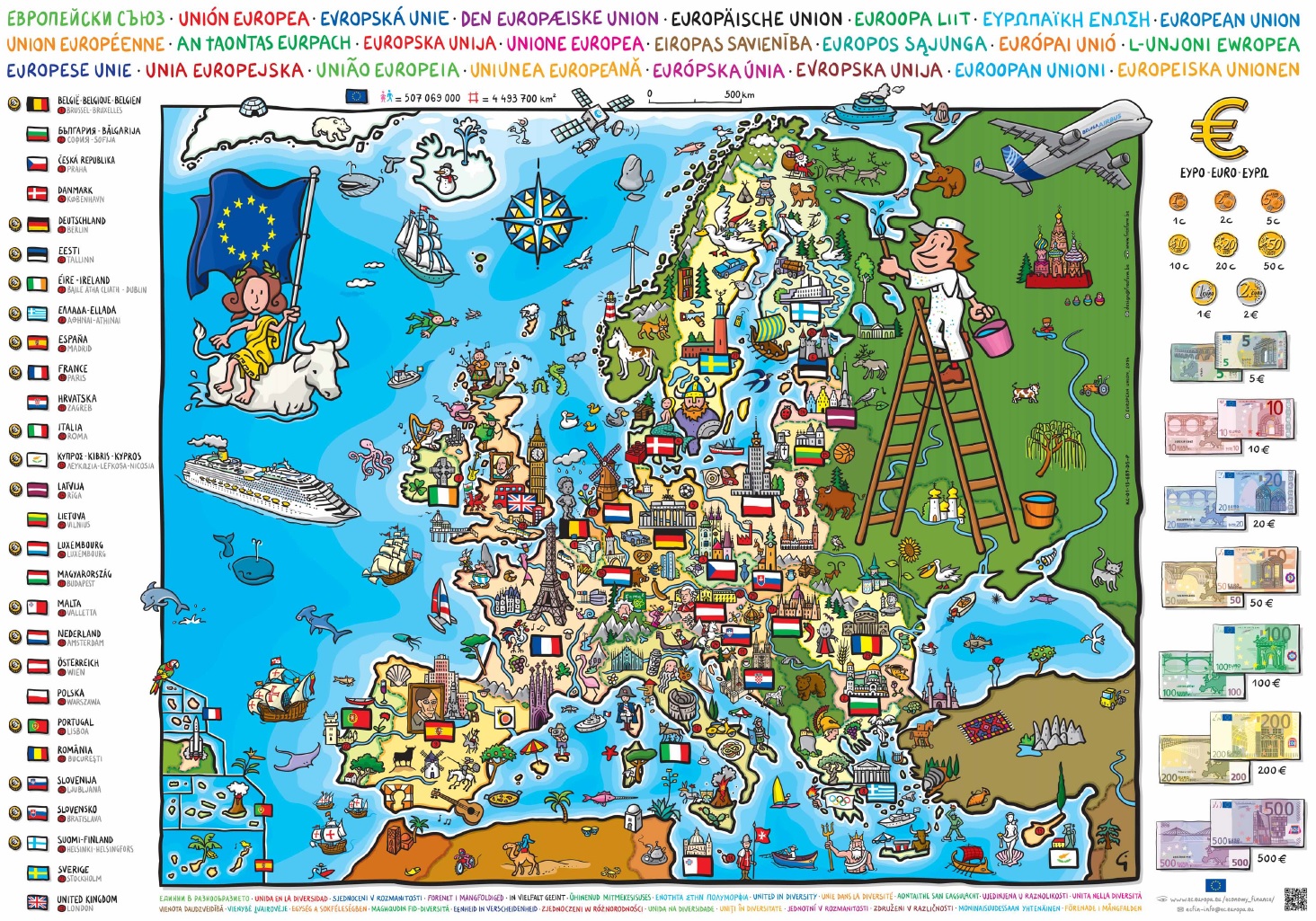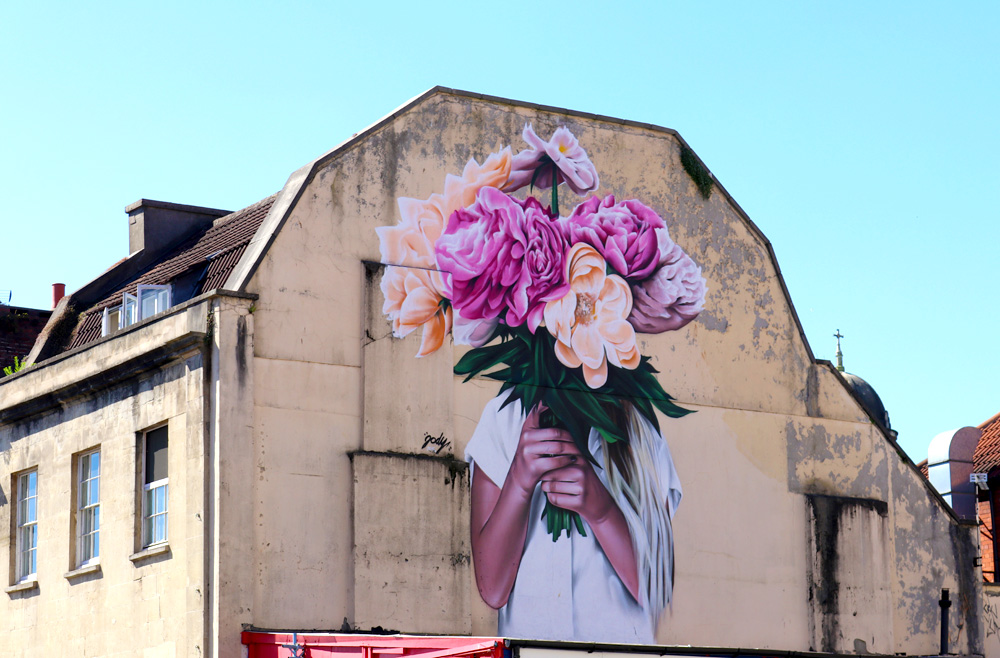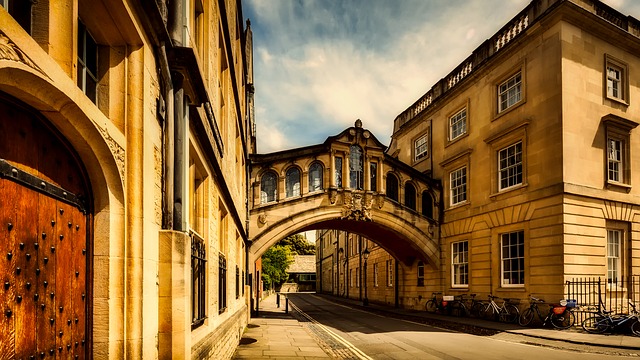
United in diversity – quick note on Brexit
We are in the EU. Poland, country I come from and UK, country I live in. United, together, in diversity.
What you hear on the news today is a very imbalanced view on EU membership of UK.
First of all you see the distinction between us (UK) and them (EU) in media and political rhetorics, completely forgetting that UK is actually part of EU. EU is not some kind of monster dominating our country and wishing to take it over with aim of final destruction. That simply is not true. UK citizens worked really hard to form and develop EU, invest in the idea of stronger European Union of countries to allow UK stand stronger on the international arena. British citizen formed EU and remain at the core of it – not on the outside. EU is in our veins so when you decide to leave, please consider it as an act of simply giving up on a larger idea of peace and international dominance. You will not have the same powers on your own.
Secondly there seems to be an assumption that EU’s aim is to diminish all that’s British. Well, actually, one of the core underlying principles of the Union is the idea of protection, education and amplification of national heritage. You might not feel is so much in the UK because of the language we all speak but just for a second think back to the time before EU membership – would you hear English in Poland or Germany? Would your city be crowned as European Capitol? Would your local museum receive EU funding in support of your local heritage? But it is because of EU regulations that within the UK we celebrate our local heritage to such extend and the impact of loosing that support would be immense. Diversity is at the core of EU set up so much so that it is featured in its motto: “United in diversity”.
You will also hear the EU costs us money and limits our local, UK trade within Europe. This is simply not true. The Economist has a very informative piece on the topic featuring the exact numbers and from what I can tell, even though I am not a specialist, we are doing just fine. Check it out – we export over five times more than the import from EU. Surely it’s a good deal, right?
Finally you will hear that Brexit is a reaction to the overwhelming burden of EU immigration on British economy. On one hand you are told that we, EU immigrants cost UK a lot. On the other hand clarification comes along that actually UK benefits from EU migration. Ultimately commons sense should tell you exactly what the well grounded news reports prove – if we loose EU immigration, yes, certain level of benefits will not be claimed, but many jobs will not get done and those who conduct them will not contribute to our UK economy. Those Polish, Romanian, Slovakian employees will move to another EU country to pay taxes there, hire services and do their shopping thus boosting economy. Isn’t this obvious? Why do we only talk about benefits? Why are we not talking about individuals who work hard, pay taxes and feed the economy? Why are these discussions so incomplete? Do you really think leaving EU will stop immigration all together? The moment your vote out your border with France will move to Dover and all those immigrants you are so worried about (so ‘neatly’ taken care of by the French) will land on your shore. What will you do then? Surely it’s not all that simple!
The moment you vote out you ARE out and you need to work hard on your new trade agreements – because you are not EU member anymore. You become ‘them’ not ‘us’ – is this what you really want?
Now all of this is analysis and study, but just let me take this post to a very personal level – and by ‘personal’ I do not mean mine, but simply a level of an individual. I am sure you have friends from both camps. I am sure you know both UK and EU citizens living in the UK. Some might be employed, others self-employed or running their own businesses. Some might claim benefits. You probably have friends who pay taxes, and those who avoid them (a British citizen mocked me once for paying taxes, I really had no words in response). You, probably just like me, might have witnessed corruption in both UK and EU immigrant camps. You have also witnessed honesty, citizenship and patriotism towards UK in both camps, in so many ways.
So how do you decide this week? I would like to suggest something different. Put aside the entire immigration discussion – it really is a small chunk of the entire EU idea, a very little piece of the puzzle you are about to leave or stay in. Think about it on two levels – as a citizen of UK and as a citizen of Europe.
As a UK citizen you have a moral obligation to go and vote – otherwise you will live in a country shaped by others and really for the near future you will have no right to express any opinions about it. As a UK citizen you are now deciding about the governance of your country. Do you want your own, UK government to be in charge of all your policies? If so, many of the EU policies (renewables, cultural heritage, gender equality and more) are in danger. And unless you are very naive you know that work on those has just begun! Do you want your UK government to be free to decide about your country knowing that it also means that UK politicians are in practice not regulated by any other authority – obviously they are not accountable in practice to you. We all know that our democracies are not that effective just yet. Consider for a second a country in which your government does not have to be accountable to any other EU member states. Is this really a better way forward? Is your national heritage going to be as celebrated as when you were within EU? Can your economy negotiate with global powers on its own or will you end up like Switzerland – allowing bigger trade partners utilise your market for 15 years before you can trade in theirs simply because your territory is small? Can your government promise you freedom and peace without the support of EU member states? If yes, then vote out.
As a EU citizen I would like you to think about other countries and what it means to be in the EU in practice. Are you OK with your families having to stand in that longer cue at every single border from Calais onward? Do you want your kids currently employed in EU to come back home because living outside of UK, in the EU is not worth it? Do you want to pay the costs of German hospital treatment after a small skiing accident because you are not legible for EU Health Insurance Card? Do you want your parents to pay higher taxes for their Spanish villa rentals during summer holidays because they property ownership is not from within the EU anymore? If yes, than vote out.
I was born in a country outside of EU. I saw the process of assimilation and I saw my country grow in tolerance and respect towards diversity. I remember my first road trip from Warsaw to Paris during which I did not have to stop a single time to show my passport and the way I could identify countries was my road markings in all local languages, architecture and heritage signage across Europe. I have learned so much about our EU countries since we have joined. Poland became more proud of Polish heritage during its years in the EU. UK became more assertive and open about its national heritage too.
I moved to the UK not because it was a promised land. I moved here because it was EASIER, nice, prettier place to live than Hungary, and secondly because it was the land of Virginia Woolf and Shakespeare. Land of everyday political correctness and fair employment rights for all. It was the land of free speech – something that we are currently suffering from, but it is still a very precious gift. Land I really wanted to contribute to with my skills, my earned money and my free time.
UK is a country of dialogue, but we need to learn to speak it without individual, biased emotions, but with passion for common human values. UK is currently in crisis because of EU heritage, because of the diversity so developed and promoted by those new European values and because of the general lack of civic engagement.
Many of us, EU immigrants, do fear Brexit – probably more as a sign of times and changes to come in many other countries too. We witness is as a test to UK society in times where political correctness, lack of civic engagement (‘why do we have to vote, why can MP’s not make that choice for us?’) and fear of open discussions about political views combined lead to silence. Silence allows one sided interpretation of historical events. You have no words to point fingers and showcase those who incentivise hate and inspire division. Your still young political correctness is not mature enough to talk about its own flip side: freedom to spread hate and racism. It’s that lack of language, that silence that allows for intolerance and often leads to violence. Sometimes allows for reverting to more traditional and less tolerant structures.
Is this what you want? Go back or move ahead?
Do you want to see violence in your country or would you rather engage in political discussions and take a stand? Would you rather allow others to decide about the future of your country, knowing that most of those ‘others’ are your fellow citizens who often do not represent your values or would you study the reasons for the referendum and make an informed choice?
I cannot vote, but you can. Whether you go to vote or note you are about to choose your side of history. You are about to decide or allow others decide about the future of EU with or without you and about the future of UK with or without EU.
So which is it going to be?
Your home-grown threat of violence or European promise of peace? “Alone & divided in silence” or “United in diversity“?
(title image from here)
(some copy updated as the original post was written at midnight and I was a bit tired)





One Comment
Pingback: